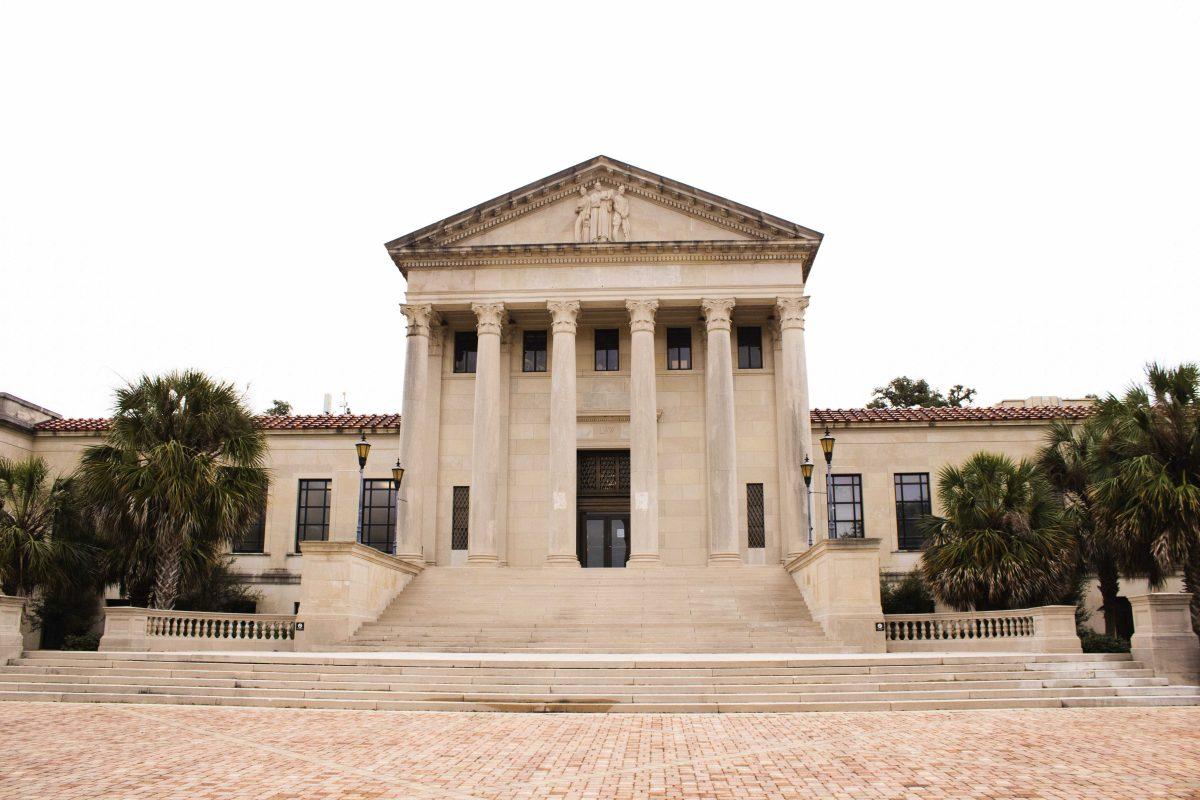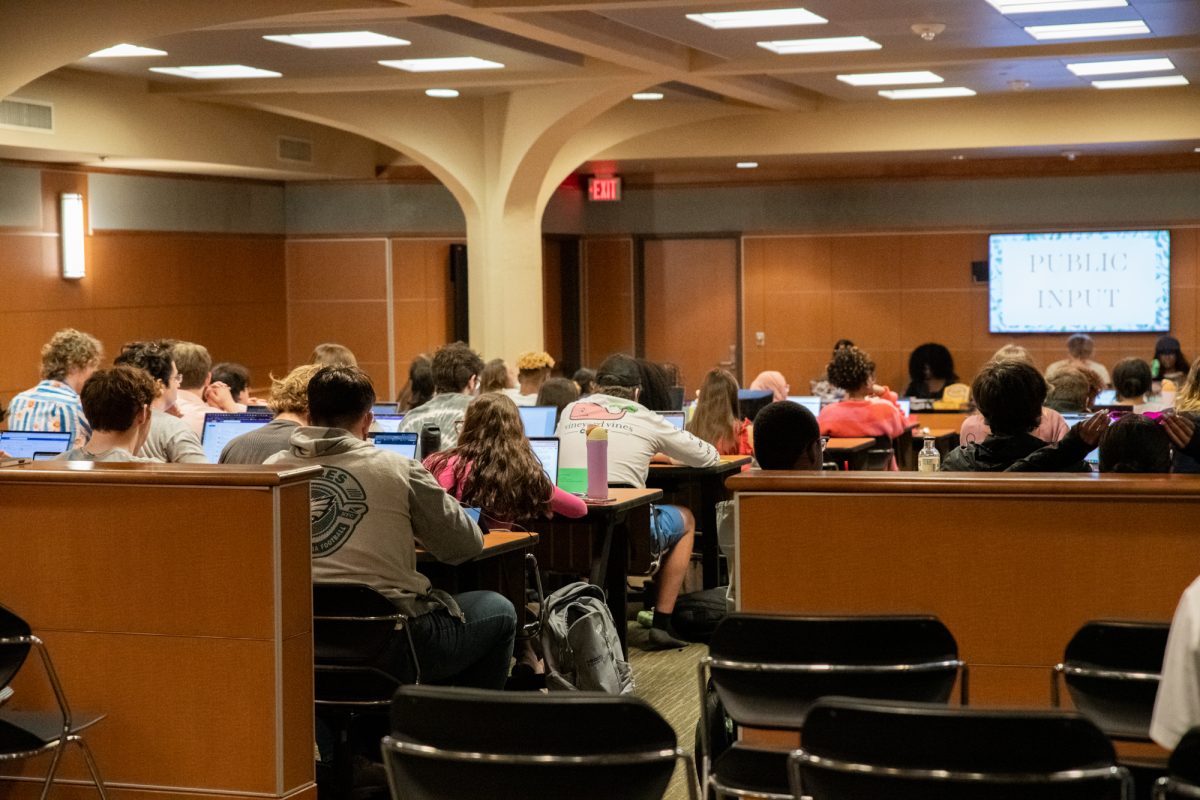Starting as soon as January, students can cool off between classes with ICEEs, thanks to the addition of two machines located at On-The-Geaux and Auntie Anne’s, Senator William Baumgardner announced at Wednesday’s Student Government meeting.
In addition to the new machines, Baumgardner said the Office of Auxilary Services is looking to incorporate more purple and gold in the Student Union and expand the Wi-Fi strength so it will be 10 times as strong there.
As SG planned changes to the Union, they also began discussing amendments made to the election code.
These changes are just a few of many underway, as SG spent the majority of the meeting debating amendments to the election code.
While the four-hour meeting didn’t cover all the changes in the 27-page document, SG will resume its discussion at next week’s meeting on Nov. 20.
Speaker pro tempore Trey Schwartzenburg said the goal of amending the election as a whole was for deregulation, which will eliminate loopholes that allow for easier disqualification of candidates.
Such changes to the election code include getting rid of a timetable on passive campaigning. SG members decided that it would be unconstitutional to regulate when a candidate can inform the student population of their plans to run. This amendment also allows candidates to hang and post signage immediately because it falls under a form of passive campaigning. However, there is still a time limit to active campaigning.
SG senators agreed that eliminating campaign timetables would prevent students from not turning out to vote because they wouldn’t feel bombarded with campaigning.
While SG eliminated a time limit to passive campaigning, the voting window was changed from two days to one day. However, voting times have been extended from 7 p.m. to midnight.
The two-day voting window was previously adopted to yield a higher voter turnout, but the longer voting window had no effect, said Speaker Alex Grashoff.
Grashoff said a one-day general election allows the Election Board more time to evaluate complaints and propose solutions to those complaints.
Lastly, the new election code will increase spending limits for candidates. Candidates will be allowed to spend up to $3,000 on their campaign instead of the current $2,500.
Candidates have gotten more freedom with the amount of money spent on a campaign but still must adhere to the 40 percent cap on discounted items for their campaign.
ICEE machines coming to Union in January
November 14, 2013
More to Discover






